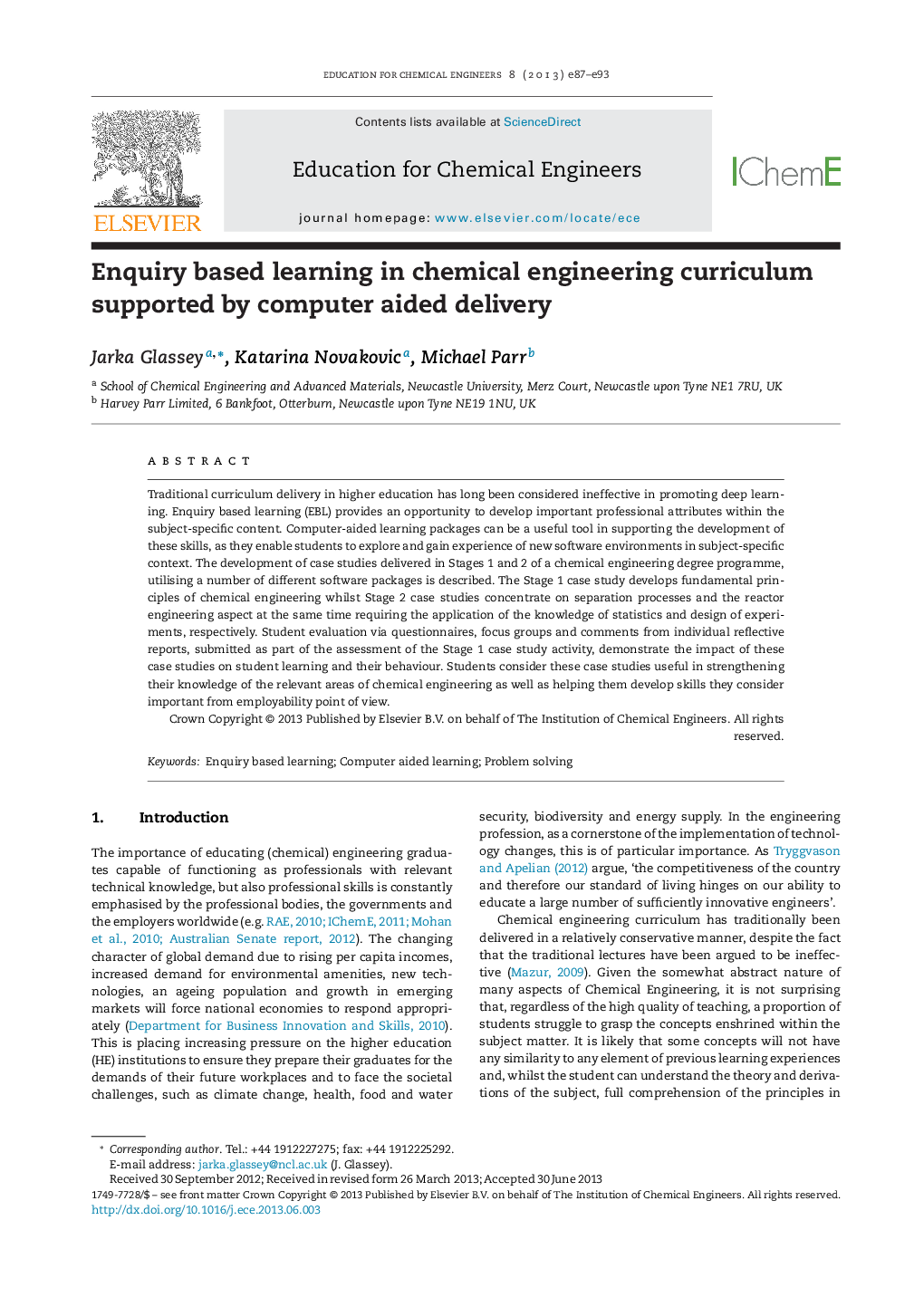| Article ID | Journal | Published Year | Pages | File Type |
|---|---|---|---|---|
| 178496 | Education for Chemical Engineers | 2013 | 7 Pages |
•Detailed description of EBL-based case studies in chemical engineering degree.•Critical development and implementation issues identified to share good practice.•Student evaluation confirming the benefits of computer aided EBL delivery.
Traditional curriculum delivery in higher education has long been considered ineffective in promoting deep learning. Enquiry based learning (EBL) provides an opportunity to develop important professional attributes within the subject-specific content. Computer-aided learning packages can be a useful tool in supporting the development of these skills, as they enable students to explore and gain experience of new software environments in subject-specific context. The development of case studies delivered in Stages 1 and 2 of a chemical engineering degree programme, utilising a number of different software packages is described. The Stage 1 case study develops fundamental principles of chemical engineering whilst Stage 2 case studies concentrate on separation processes and the reactor engineering aspect at the same time requiring the application of the knowledge of statistics and design of experiments, respectively. Student evaluation via questionnaires, focus groups and comments from individual reflective reports, submitted as part of the assessment of the Stage 1 case study activity, demonstrate the impact of these case studies on student learning and their behaviour. Students consider these case studies useful in strengthening their knowledge of the relevant areas of chemical engineering as well as helping them develop skills they consider important from employability point of view.
